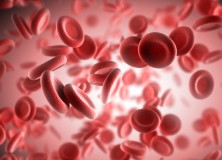Here are five fast facts about iron deficiency that you may not have known:
- Approximately 5% of Canadian children aged 1 to 5 suffer from iron deficiency and iron deficiency anemia. Is your child at risk?
- Hemoglobin levels of 12 – 17 g/dl for females and 13 – 18 g/dl for males is considered normal. Check out what tests you can expect when screening for iron deficiency
- It is estimated that 20% of women of childbearing age are iron deficient and 50% of pregnant women develop iron deficiency. Find out why women need iron throughout their entire lifetime
- The World Health Organization (WHO) says that 2 billion people are anemic, many due to iron deficiency. That’s more than 30% of the world’s population! Did you know that iron deficiency is preventable? Find out what you can do
- According to a paper published in the Cardiology Journal Heart, iron deficiency is present in 30 – 50% of patients with heart failure and has been associated with poorer medical outcomes including a higher risk of death. Find out more about the connection between iron deficiency and your heart
Content and advice provided on The Iron Maiden is for information purposes only and should not serve as a substitute for a licensed health care provider, who is knowledgeable about an individual’s unique health care needs












